
A think tank, or policy institute, is a research institute that performs research and advocacy concerning topics such as social policy, political strategy, economics, military, technology, and culture. Most think tanks are non-governmental organizations, but some are semi-autonomous agencies within government, and some are associated with particular political parties, businesses or the military. Think tanks are often funded by individual donations, with many also accepting government grants.

The Mackinac Center for Public Policy in Midland, Michigan, is the largest U.S. state-based free market think tank in the United States. The Mackinac Center conducts policy research and educational programs. The Center sponsors MichiganVotes.org, an online legislative voting record database which provides a non-partisan summary of every bill and vote in the Michigan legislature. Mackinac Center scholars generally recommend lower taxes, reduced regulatory authority for state agencies, right-to-work laws, school choice, and enhanced protection of individual property rights; they avoid socially conservative issues such as reproductive or marriage rights.

The Brookings Institution, often stylized as Brookings, is an American think tank that conducts research and education in the social sciences, primarily in economics, metropolitan policy, governance, foreign policy, global economy, and economic development.
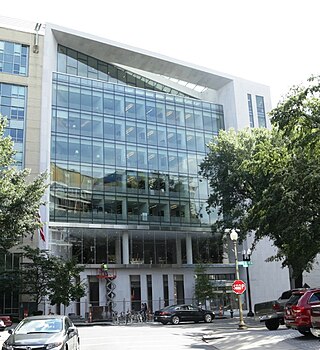
The Center for Strategic and International Studies (CSIS) is an American think tank based in Washington, D.C. From its founding in 1962 until 1987, it was an affiliate of Georgetown University, initially named the Center for Strategic and International Studies of Georgetown University. The center conducts policy studies and strategic analyses of political, economic and security issues throughout the world, with a focus on issues concerning international relations, trade, technology, finance, energy and geostrategy.

The Economic Policy Institute (EPI) is a 501(c)(3) non-profit American think tank based in Washington, D.C., that carries out economic research and analyzes the economic impact of policies and proposals. Affiliated with the labor movement, the EPI is usually described as presenting a left-leaning and pro-union viewpoint on public policy issues. Since 2021, EPI has been led by economist Heidi Shierholz, the former chief economist of the Department of Labor.
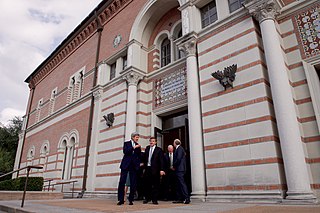
"Rice University's Baker Institute for Public Policy", also known as the "Baker Institute", is an American think tank housed on the campus of Rice University in Houston, Texas. Founded in 1993, it functions as a center for public policy research. It is named for James A. Baker, III, former United States Secretary of State, Secretary of the Treasury, and White House Chief of Staff. It is directed by Ambassador David M. Satterfield and funded mainly by donor contributions, endowments, and research grants.
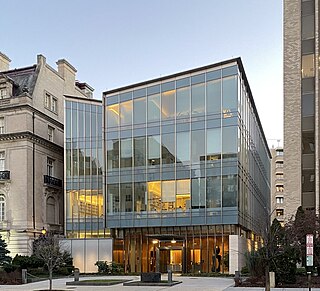
The Peterson Institute for International Economics (PIIE), known until 2006 as the Institute for International Economics (IIE), is an American think tank based in Washington, D.C. It was founded by C. Fred Bergsten in 1981 and has been led by Adam S. Posen since 2013. PIIE conducts research, provides policy recommendations, and publishes books and articles on a wide range of topics related to the US economy and international economics.

The Urban Institute is a Washington, D.C.–based think tank that conducts economic and social policy research to "open minds, shape decisions, and offer solutions". The institute receives funding from government contracts, foundations, and private donors.
The International Strategic Research Organization is an independent think-tank established in 2004. It pursues interdisciplinary studies on national and international political, economic and security issues.
Turkish think tanks are relatively new, but such think tanks provide research and ideas, yet they play less important roles in policy-making when compared with American think tanks. Many of them are sister organizations of a political party or a company. There are very few university think tanks.

Spencer A. Overton is an American lawyer, President of the Joint Center for Political and Economic Studies, and law professor at George Washington University Law School. He is a leading election law scholar, and is a tenured Professor of Law at George Washington University.
The Census Information Center program is part of the U.S. Census Bureau's data dissemination network.
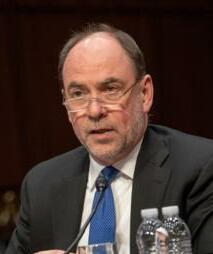
Douglas James "Doug" Holtz-Eakin is an American economist. He was formerly an economics professor at Syracuse University, director of the Congressional Budget Office, and chief economic policy adviser to Senator John McCain's 2008 presidential campaign. Holtz-Eakin is currently president of the American Action Forum policy institute, a conservative think tank.
David A. Bositis is an American expert on voting rights and redistricting. He is a former a senior research associate at the Joint Center for Political and Economic Studies in Washington, D.C.
Third Way is a Washington, D.C.–based public policy think tank founded in 2005. It develops and advocates for policies that it says represent "modern center-left ideas".
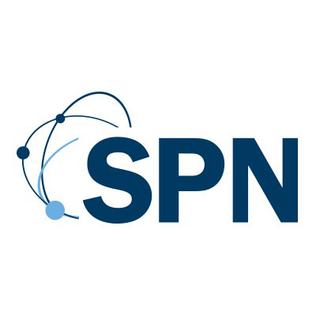
The State Policy Network (SPN) is a nonprofit organization that serves as a network for conservative and libertarian think tanks focusing on state-level policy in the United States. The network serves as a public policy clearinghouse and advises its member think tanks on fundraising, running a nonprofit, and communicating ideas. Founded in 1992, it is headquartered in Arlington, Virginia, with member groups located in all fifty states.

Robert Raben is the founder and president of the Washington, D.C.-based lobbying and consulting firm The Raben Group, and was Assistant Attorney General at the Department of Justice under former President Bill Clinton.
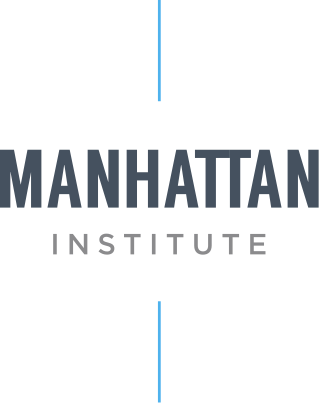
The Manhattan Institute for Policy Research is an American conservative think tank focused on domestic policy and urban affairs. The institute's focus covers a wide variety of issues including healthcare, higher education, public housing, prisoner reentry, and policing. It was established in Manhattan in 1978 by Antony Fisher and William J. Casey.
Margaret Constance Simms is a 21st century American economist whose work focuses on the economic well being of African Americans.
Eddie Williams was President of the Joint Center for Political and Economic Studies from 1972 to 2004. During this time, he transformed it into the focal point of political thought and research within the black community along with the creation of an inventory of 10,000+ Black Elected Officials. Williams also helped with the creation of the National Coalition on Black Civic Participation. He founded Focus Magazine as a way to develop a space for black officials, activists, academics etc. throughout the country to work together.











